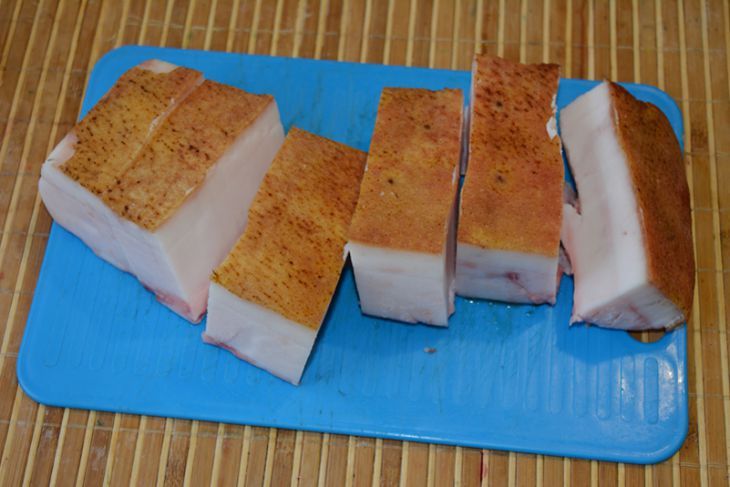Relatively recently, the nation's favorite product, lard, was amnestied by nutritionists.
If earlier it was forbidden to eat it often because of the fats, now, on the contrary, experts recommend including lard in your diet as often as possible.
They have revised their position on the question of whether lard is a heavy product. Today they say – no, it is not heavy.
But on condition that the consumer does not abuse it, i.e. does not go beyond the maximum daily norm of 30 grams.
Are you afraid of overeating? And here nutritionists reassure: they say that although lard is a fatty product, it is high in calories and nutritious, and therefore provides a feeling of satiety for quite a long time.

Benefit
What is the benefit of lard? Thanks to the arachidonic acid it contains, it supports the body's immunity.
Thanks to the oleic acid present in lard, the functioning of the human brain is stimulated.
And linolenic acid protects our cell membranes from the attacks of evil free radicals.
Palmitoleic acid stabilizes blood lipid levels.
In addition, the product contains a whole universe of microelements and vitamins useful for the human body, including selenium, phosphorus, potassium, calcium, copper, zinc, sodium and magnesium, vitamins A, B1, B5, D and E.
And if you eat every day
If you eat lard every day, but not exceeding the above-mentioned norm of 30 grams, then, for example, after a long illness, your immunity will be restored.
Research by scientists has shown that lard is especially useful for people who have suffered injuries and fractures.
In addition, the product helps improve the human respiratory system.
Moreover, the works of scientists show that people who frequently consume lard suffer much less from cardiovascular diseases, strokes and heart attacks than those who replace fats with carbohydrates.
Previously, 5 reasons were named why you should include champignons in your diet.








